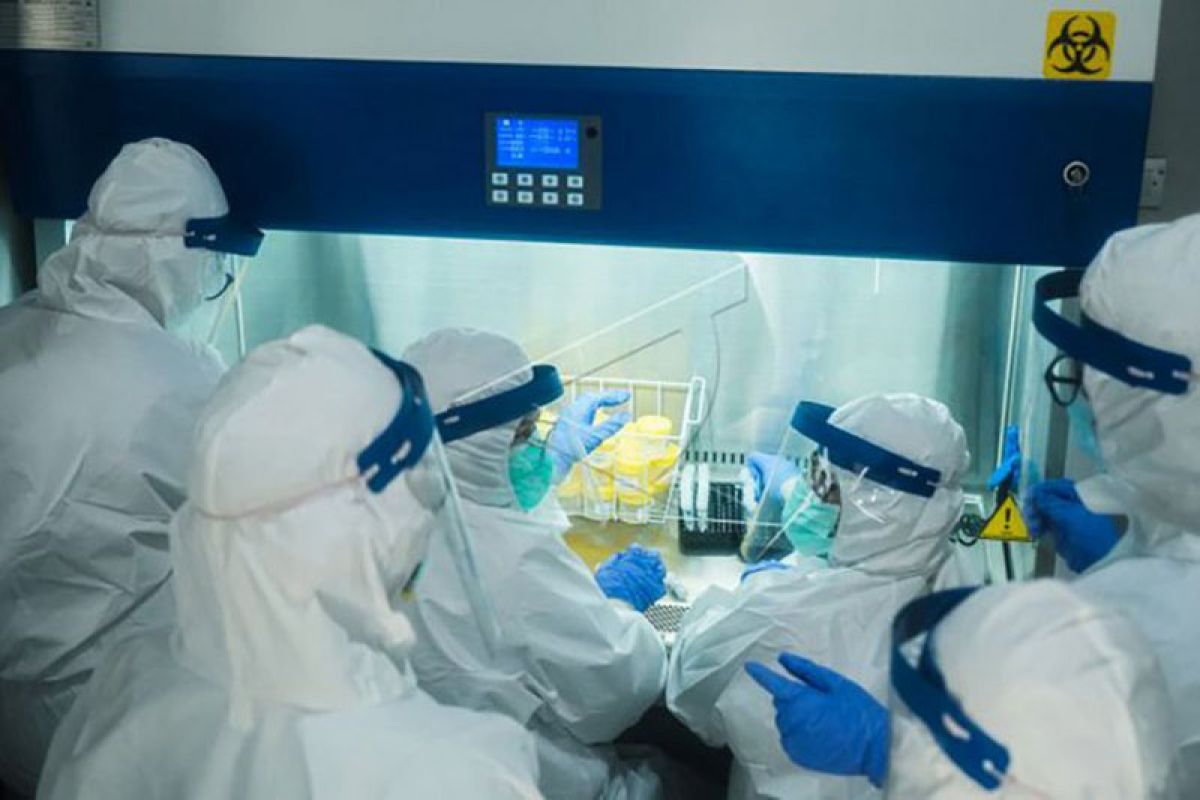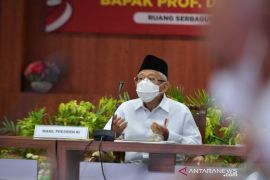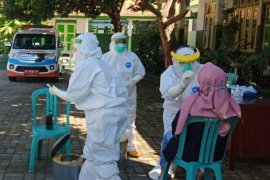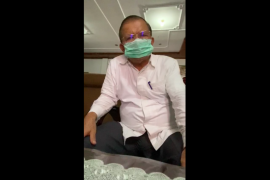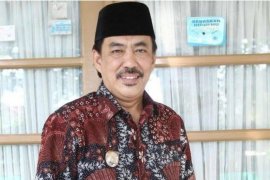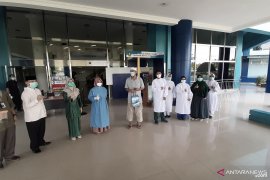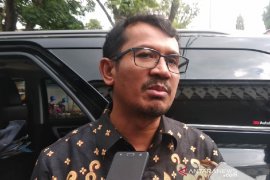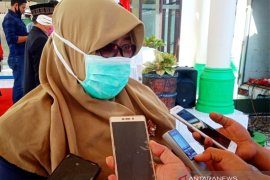Take care of yourself at this time. Try and use helpful coping strategies such as ensuring sufficient rest and respite during work or between shifts, eat sufficient and healthy food, engage in physical activity, and stay in contact with family and frJakarta (ANTARA) - The United Nations (UN) has recently warned the coronavirus pandemic could cause a global mental health crisis.
A report presented by a UN health expert on May 14 identified children, young people, and healthcare workers tending to patients infected with and dying of COVID-19 as vulnerable to mental distress.
“The isolation, the fear, the uncertainty, the economic turmoil — they all cause or could cause psychological distress,” said Devora Kestel, director of the mental health department of the World Health Organization (WHO).
Last week, Reuters interviewed doctors and nurses in the United States, who said either they or their colleagues had experienced a combination of panic, anxiety, grief, numbness, irritability, insomnia, or nightmares.
Such reports cannot be underestimated as coronavirus has been proven to have an impact on the mental health of medics.
In late April this year, a top emergency room doctor at a Manhattan hospital, which treated many coronavirus patients, committed suicide.
Dr. Lorna M. Breen, the medical director of the emergency department at the New York-Presbyterian Allen Hospital, took her own life in Charlottesville, where she was staying with family.
Dr. Breen’s father, Dr. Philip C. Breen, said she had described the horrific toll COVID-19 took on patients.
“She tried to do her job, and it killed her,” he was quoted by The New York Times as saying.
The elder Dr. Breen said his daughter had contracted COVID-19, but had gone back to work after recuperating for about a week and a half. The hospital sent her home again, before her family intervened to bring her to Charlottesville, he added.
Dr. Breen, 49, did not have a history of mental illness, her father pointed out. But, he said, that when he last spoke with her, he could tell something was wrong.
She had described to him an onslaught of patients who were dying before they could even be taken out of ambulances.
“She was truly in the trenches of the front line,” he said.
He added: “Make sure she’s praised as a hero, because she was. She’s a casualty just as much as anyone else who has died.”
Dr. Lawrence A. Melniker, the vice chair for quality care at the NewYork-Presbyterian Brooklyn Methodist Hospital, said the coronavirus had presented unusual mental health challenges for emergency physicians throughout New York, the epicenter of the crisis in the US.
Doctors are accustomed to responding to all sorts of grisly tragedies, he said. But rarely do they have to worry about getting sick themselves, or about infecting their colleagues, friends, and family members.
And rarely do they have to treat their own co-workers, Dr. Melniker noted.
According to the WHO, feeling pressured is normal and likely to be experienced by healthcare workers during this pandemic.
A report on mental health and psychosocial considerations during the COVID-19 outbreak, released by the WHO on March 18, 2020, reveals that stress and the feelings associated with it are by no means a reflection that healthcare workers cannot do their job, or that they are weak.
For medical workers, managing their mental health and psychosocial well-being during this time is as important as managing physical health, according to the WHO.
“Take care of yourself at this time. Try and use helpful coping strategies such as ensuring sufficient rest and respite during work or between shifts, eat sufficient and healthy food, engage in physical activity, and stay in contact with family and friends,” the WHO advised medics.
Healthcare workers have been asked to avoid using unhelpful coping strategies, such as using tobacco, alcohol, or other drugs, which, in the long term, can worsen their mental and physical well-being.
Doctors and nurses are expected to know how to de-stress, and they should not be hesitant to protect their mental health.
“This is not a sprint; it is a marathon,” warned the WHO, referring to the unprecedented scenario of COVID-19, which may last for a long period of time.
To stave off a mental health crisis, the WHO has urged hospitals to think of the pandemic as a long-term situation, and give workers breaks and rotate them out of high-stress positions.
Related news: Number of COVID-19 recoveries in Indonesia totals 231 on Thursday
Related news: RAISA assists medical personnel in COVID-19 treatment
In light of the huge impact that the coronavirus can have on the mental health of doctors and nurses, a discussion organized by the Indonesian Hospital Association (PERSI) focused on a positive attitude and counseling services as solutions.
According to Dr. Petrin Redayani Lukman, chairperson of the Psychotherapy Section and the Counseling Team for Health Workers at the Cipto Mangunkusumo Hospital, mental health problems affect attention, understanding, and decision-making ability, and, in the long run, affect the overall welfare of medical personnel.
A research conducted on 393 respondents at the hospital has showed that 42.2 percent of respondents felt the need for mental health services.
The number of respondents who felt the need for a mental health check and those who said they did not need one was almost the same. Respondents said they felt the need for counseling and psychotherapy, done individually, both online and face-to-face.
"Our recommendations and suggestions (include) increasing efforts to disseminate information about counseling services and meeting client needs by providing practical problem-solving that can be packaged in leaflets containing information related to COVID-19 for health workers,” she said.
“We are also providing guidance for unit heads or leaders to provide information which is straightforward, information and guidance on PPE data, the development of peer support, including by leaders, because it is expected to be a helper,” she continued.
Given the current conditions, said Lukman, the most important factor remains instilling a positive attitude among individual and team personnel in facing challenges, along with building mutual support.
Related news: Health protocol key to preventing second COVID-19 wave: Task Force
Related news: Industry Ministry to boost self-sufficiency in medical device
Editor: Fardah Assegaf
Copyright © ANTARA 2020
